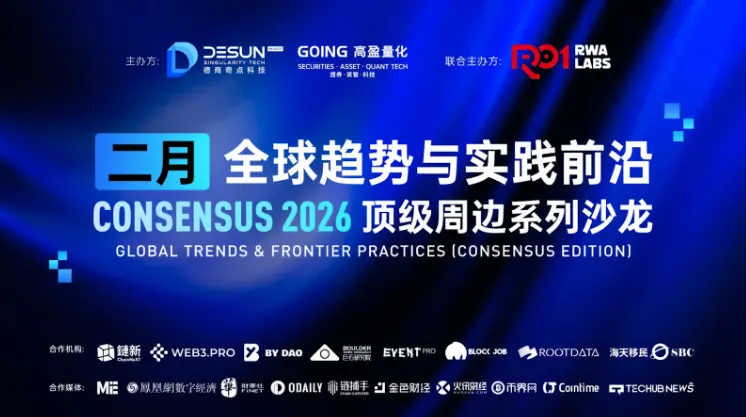How can companies ensure compliance and mitigate the potential risks brought by Web3?
As the blockchain industry develops, companies are facing various compliance and risk management challenges. With the increasing complexity of decentralized finance (DeFi) and the growing threats of security risks, the demand for robust compliance solutions has never been more urgent.
Regulatory Environment - A Complex Ecosystem
The regulatory environment for crypto assets is rapidly evolving, although approaches vary across jurisdictions worldwide. For example, the Financial Action Task Force (FATF) has established global standards for anti-money laundering (AML) and combating the financing of terrorism (CFT), while specific regulations such as the Travel Rule (Travel Rule), Hong Kong's VASP regulations, and the European Union's Markets in Crypto-Assets (MiCA) further complicate compliance.
Compared to traditional finance, cryptocurrency anti-money laundering/anti-terrorist financing faces unique challenges. Anonymity, cross-border transactions, and the lack of centralized intermediaries make tracking and preventing illegal activities extremely difficult. It is estimated that the amount laundered through digital assets in 2022 was 23.8 billion USD, a significant increase from 14.2 billion USD in 2021.
Moreover, the anonymity allowed by blockchain technology has been exploited by radical organizations such as Hamas. Recently, the Israeli government requested Binance to freeze a large number of accounts related to Hamas. According to law enforcement, the terrorist organization used these accounts to raise funds related to the war via social media. Such incidents further highlight the necessity of a regulatory framework in the cryptocurrency and blockchain space.
Recently, there has been a growing trend in the cryptocurrency industry to adopt RegTech solutions to address compliance challenges and meet regulatory requirements. Virtual asset service providers (VASPs) are seeking licenses to operate legally, while financial institutions are exploring opportunities for the tokenization of real-world assets (RWA).
Major financial institutions are also closely monitoring DeFi, as it has the potential to transform traditional financial services through the integration of trustless interactions. Recently, the Bank of Canada explored the innovations of DeFi and concerns regarding it, emphasizing the regulatory challenges. The central bank noted, "The anonymity and borderless nature of public chains make regulation difficult and complex."
Achieving Compliance and Risk Management in Cryptocurrency
The adoption of RegTech solutions is becoming increasingly important. Blockchain and Web3 companies should prioritize data monitoring and on-chain analysis to prevent issues before they arise. Currently, there are several blockchain data platforms in the industry, with OKLink being one of them, tracking over 170 chains and possessing over 1,000 TB of structured data.
One of OKLink's flagship products is Onchain AML, which was launched globally in September after its release in June this year, helping blockchain enterprises and DeFi services enhance compliance and risk management. This solution comprehensively meets the needs of value-added service providers, institutions, cryptocurrency exchanges, Web3 projects, regulators, law enforcement agencies, and developers, thereby protecting end-user safety. Web3 projects can also use OKLink's Onchain AML to control risks by providing intelligent alerts on contract codes and funds involving blacklisted addresses.

Source: OKLink
OKLink's Onchain AML offers two core functionalities: Know Your Transaction (KYT) transaction tracing and Know Your Address (KYA) address tracing. These powerful tools enable businesses and individuals to effectively manage risk and enhance compliance.
The first transaction monitoring tool, KYT, analyzes on-chain risks and assesses transaction security. It can identify connections between addresses and real-world entities, evaluate transaction risks, and help blockchain services comply with regulations.
This product can also assist crypto services in improving their risk control capabilities. If an address is involved in illegal activities, it will help crypto services reject its transfers or freeze its accounts.

Source: OKLink
First, let's talk about KYA, a powerful data-driven risk assessment tool that helps governments, businesses, and individuals enhance the transparency of virtual currencies and navigate the complex blockchain ecosystem with greater confidence. This innovative tool utilizes a unique model to conduct detailed assessments of risks associated with blockchain addresses from five dimensions:
- Address Blacklist: KYA can identify and label addresses associated with malicious activities such as scams, phishing attacks, and sanctions, ensuring users can make informed decisions and avoid potential harmful interactions.
- Addresses Associated with Blacklisted Addresses: KYA extends its risk assessment beyond blacklisted addresses by identifying addresses that directly interact with these malicious entities, providing an additional layer of protection and enabling proactive risk mitigation.
- Suspicious Transactions: KYA can identify addresses involved in suspicious transactions and alert users, prompting further investigation and preventing potential losses.
- Suspicious Identities: KYA can detect possible identities, such as Sybil nodes that can be easily exploited and identities associated with crypto mixers, thereby protecting users from exploitation and promoting a safer crypto environment.
- High-Risk Entities: KYA categorizes exchanges into high-risk, medium-risk, and low-risk, providing valuable guidance for decision-making, allowing users to prioritize interactions with reputable exchanges.
In addition to KYT and KYA, OKLink's Onchain AML also provides a blockchain index dashboard for analyzing on-chain data and a security audit tool for auditing tokens.
The OKLink ecosystem also includes an exploration tool that supports over 30 chains, providing users with a detailed view of on-chain activities for thorough investigation and analysis. This tool allows for granular inspection of blockchain transactions, enabling users to identify potential risks or violations.

Source: OKLink
Furthermore, OKLink's Onchain AML suite can seamlessly integrate with Chaintelligence (a leading crypto asset investigation platform). This integration provides Web3 companies with advanced forensic capabilities for tracking and analyzing illegal transactions.
OKLink is committed to creating a safer environment for Web3 companies by enabling businesses and governments to utilize its Onchain AML suite of risk management tools to address the evolving security risks and compliance challenges in blockchain.


























